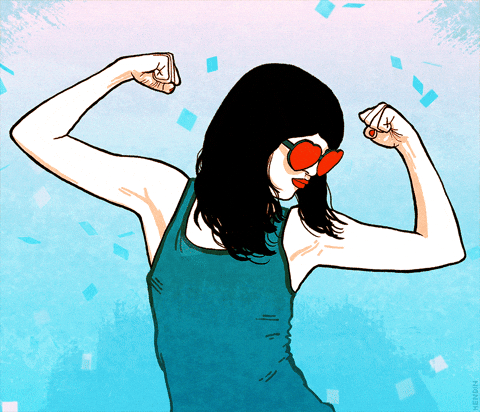
Radical Empowerment
At the Autonomy Project, radical empowerment isn’t just a buzzword — it’s our foundation. We believe every person deserves the right to live fully in their autonomy: to make choices about their body, their identity, their creativity, and their path without fear, shame, or coercion.
But we also know that empowerment doesn’t happen in a vacuum. Many of us come into this community carrying the weight of systemic issues that have chipped away at our autonomy — things like racism, transmisogyny, fatphobia, ableism, classism, stigma around sex work, and more. Some of us have been silenced, excluded, or told that we don’t belong. Radical empowerment means refusing to ignore those realities.
What Radical Empowerment Means
When we say radical, we mean going to the root. Empowerment is not just cheerleading from the sidelines — it’s about actively creating conditions where people who have been historically disempowered can actually thrive. It’s about shifting power, dismantling barriers, and making sure nobody has to shrink themselves to be accepted here.
Radical empowerment looks like:
- Self-expression without apology – Your art, your weirdness, your gender, your kinks, your creativity, your voice — they’re not just “allowed,” they’re celebrated.
- Autonomy in action – You choose how you show up, what you say yes to, and where your boundaries are. No guilt. No shame.
- Collective support – Autonomy isn’t about being on your own. It’s about community backing, encouragement, and knowing people will have your back when the world tries to knock you down.
The Systemic Piece
We recognize that “just be empowered” is easy to say but hard to live when:
- Society undervalues queer, trans, and disabled lives.
- Survivors are told to stay quiet.
- Women and femmes are punished for speaking up.
- Poor and working-class folks are shut out of opportunities.
- Sex workers are criminalized instead of supported.
Radical empowerment means we don’t gloss over these truths. Instead, we ask: How can we, as a community, remove those barriers and rewrite the story?
How We Address It
- Anti-oppression practice: We actively challenge systems of harm that limit empowerment — from calling out bias to making events more accessible.
- Redistributing resources: Mutual aid, sliding scale events, and scholarships make sure finances aren’t a barrier to participation.
- Centering marginalized voices: Leadership and decision-making are open to those most impacted by oppression, not just those with privilege.
- Restorative accountability: When harm happens, we don’t sweep it under the rug. We use restorative practices to address it so trust and empowerment can be rebuilt.
- Do-ocracy: If you have a good idea and the energy to lead it, the community supports you in bringing it to life. That includes folks who may have been excluded elsewhere — your ideas matter here.

👉 As a volunteer, you’re not just filling a role. You’re helping dismantle the barriers that keep people from empowerment and building a space where everyone — especially those most marginalized — can step into their power. That’s radical. That’s why we’re here.
Why It Matters for Volunteers
Volunteers are the heartbeat of the Autonomy Project. Radical empowerment means your presence matters, whether you’re:
- Welcoming new folks at the door,
- Designing art or workshops that spark transformation,
- Organizing behind the scenes,
- Or just holding space with kindness and care.
You don’t need to have “credentials” to make an impact here. What matters is your willingness to show up as your authentic self and contribute what you can.
Radical Empowerment in Action
When a room is full of people who feel safe to speak up, create, and connect without fear of dismissal, something powerful happens: we move from surviving to thriving. That shift doesn’t just change our events — it ripples out into neighborhoods, movements, and entire cultures.
Radical empowerment is contagious. When you feel it, you pass it on. When someone sees you standing in your power unapologetically, they start to believe they can too.
And that’s how liberation happens — not from the top down, but from all of us realizing that we already have the power to transform our world, together.